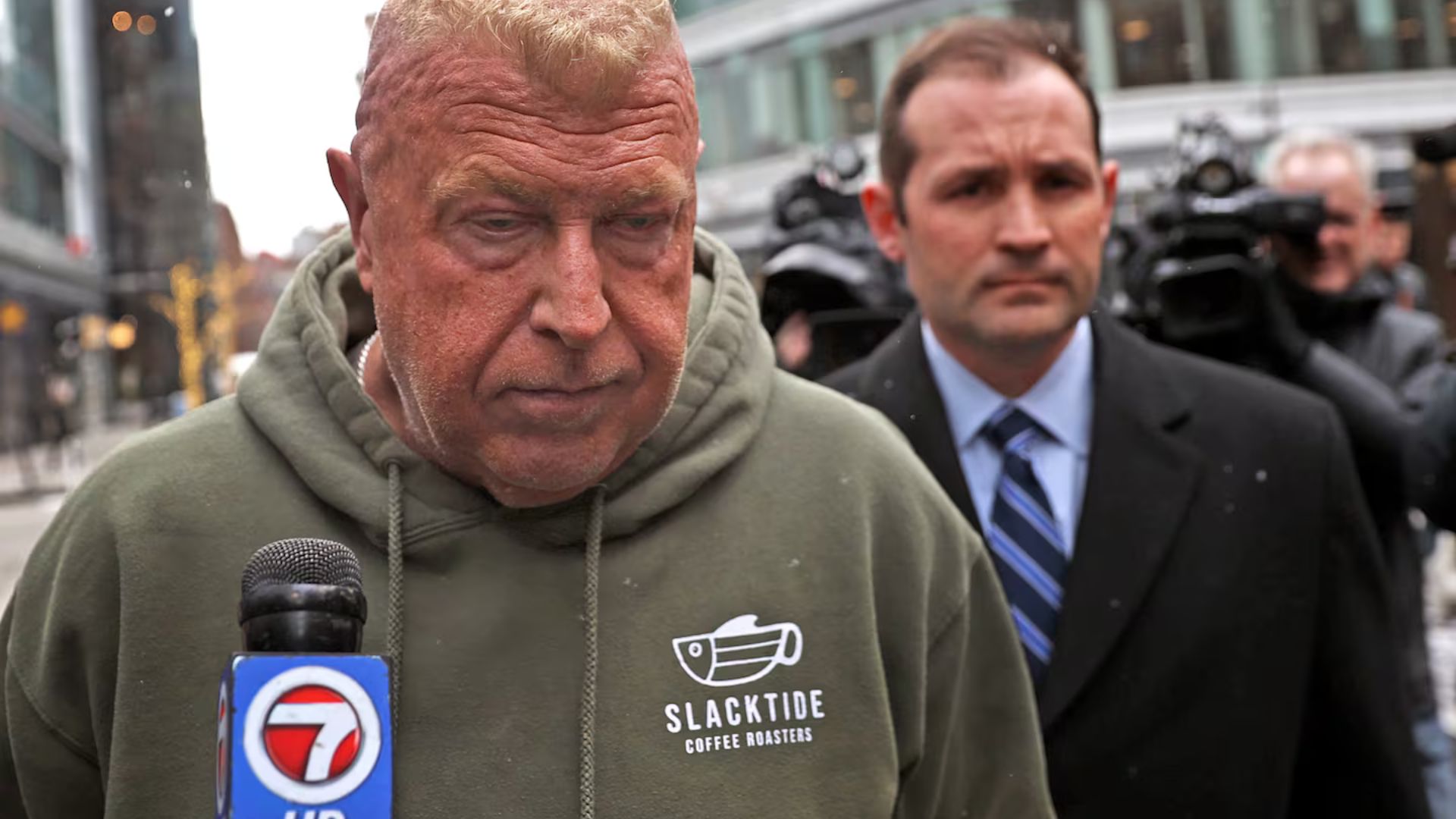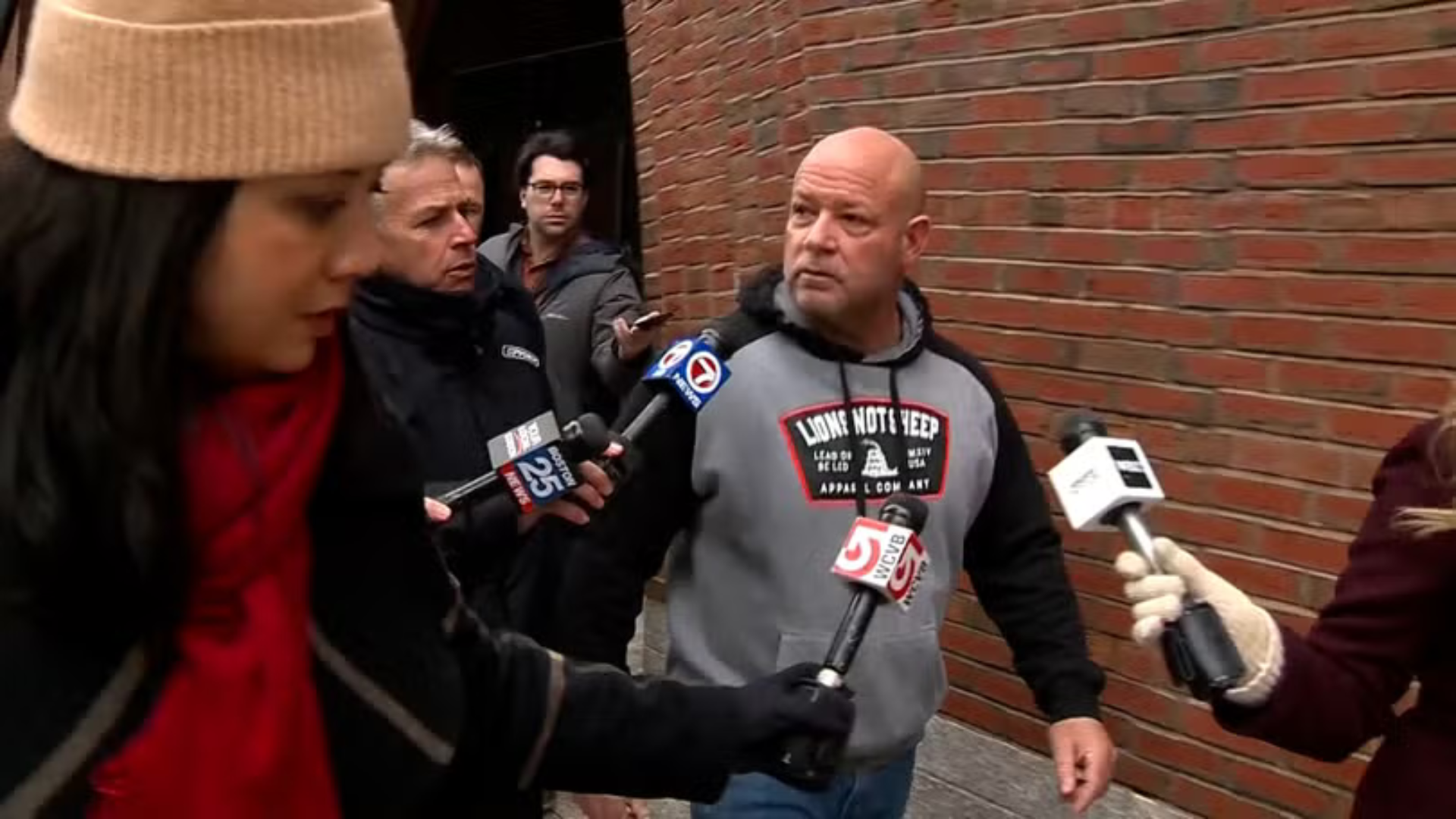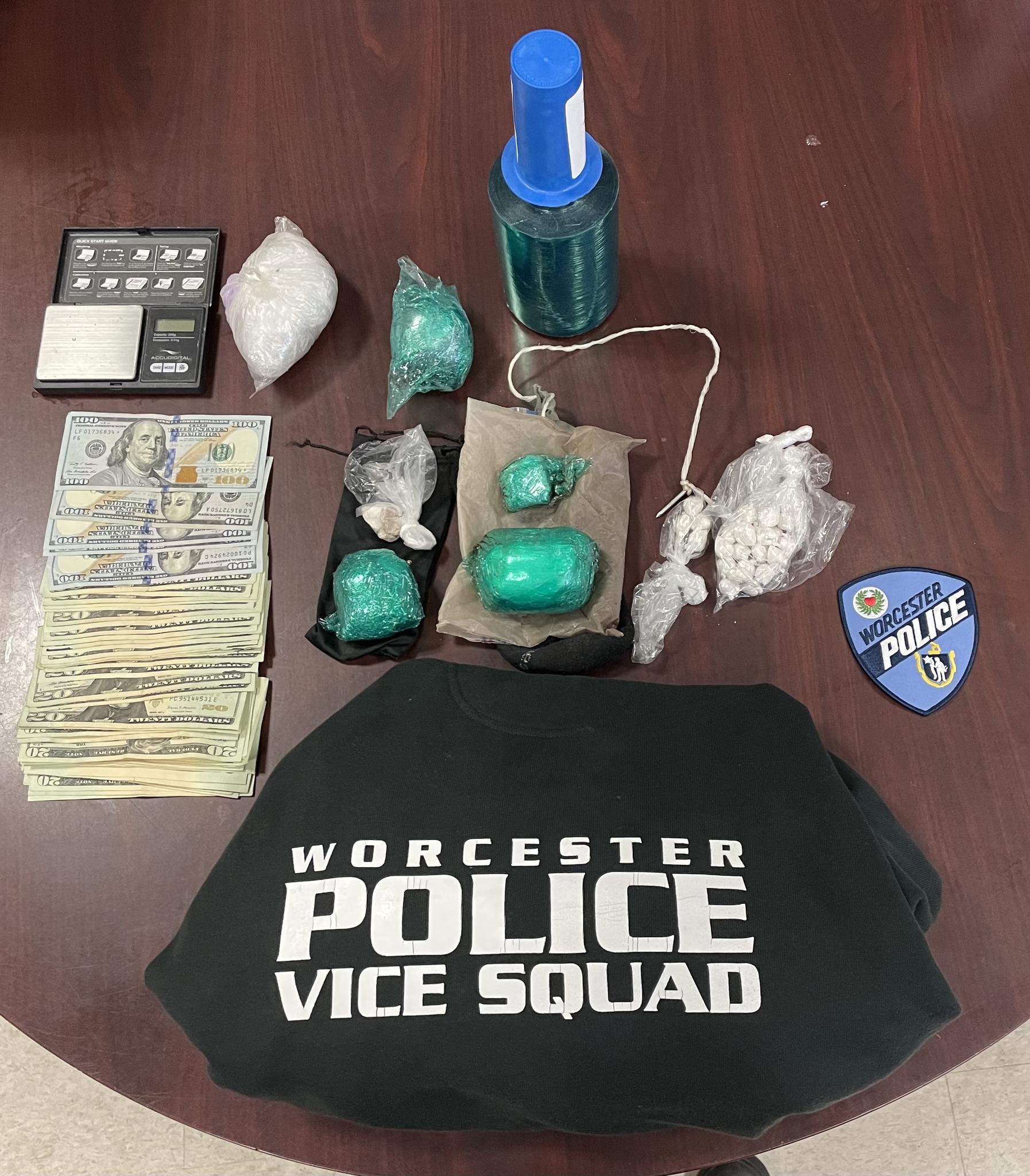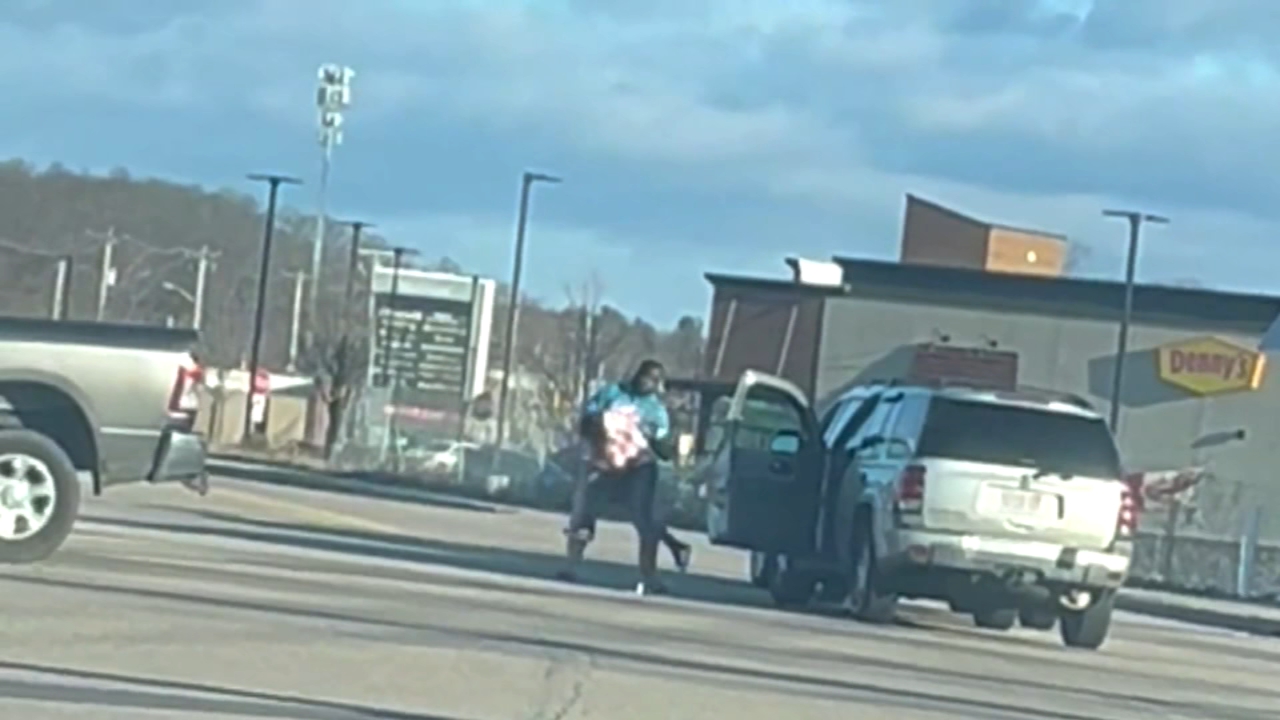Gary Cederquist: The Shocking Truth Behind His Conviction


- Former Massachusetts State Police sergeant Gary Cederquist was convicted on 48 counts, including extortion, conspiracy, and falsification of records.
- He exploited his law enforcement role, accepting bribes in exchange for passing unqualified CDL applicants.
- The bribery scheme involved various items, including Twizzlers, tea products, a snowblower, and a new driveway worth $10,000.
- Public safety was seriously compromised as unqualified drivers received commercial driver’s licenses.
- Sentencing is scheduled for July 24, with charges carrying up to 20 years in prison per count.
- Homeland Security Investigations New England highlighted the stark public safety implications of Cederquist’s actions.
A shocking case has come out about former Massachusetts State Police Sergeant Gary Cederquist. He used his trusted position in law enforcement to take bribes. In return, he gave commercial driver’s licenses to unqualified commercial driver’s license applicants. This behavior ignored the CDL skills test requirements. It also put public safety at risk. This federal criminal case shows a dark side of law enforcement and raises important questions about how licenses are given out. Let’s look into the details of this serious breach.
Gary Cederquist’s conviction in federal court is an important criminal case about public corruption. Cederquist messed with the CDL skills test system. He gave false passing scores to people who either failed or skipped the required vehicle inspection, basic control skills, and road test parts. This case was handled by Homeland Security Investigations New England and the U.S. Attorney’s Office. It showed the serious effects of his illegal actions.
Jurors found him guilty on 48 out of 57 federal charges, which included conspiracy, extortion, and falsifying records. While he was found not guilty on nine counts, his conviction revealed a scheme that lasted for years. This scheme seriously harmed the trust in law enforcement and the commercial driver certification process. This criminal case shows what can happen when authority is misused for personal gain.
Gary Cederquist faced many federal charges for cheating in CDL licensing practices. He was found guilty of two counts of conspiracy to commit extortion, six counts of honest services mail fraud, three counts of conspiracy to falsify records, and 19 counts of record falsification. These are all serious charges for someone in a law enforcement agency.
The verdict shows a serious breach of trust in public service. Prosecutors said that some applicants received passing scores, even though they failed the CDL skills test. This was made possible by bribes of free inventory, such as free goods from the water company, like tea products and boxes of Twizzlers. Although Cederquist was cleared of some charges, such as one conspiracy and several extortion counts, this doesn’t change the seriousness of what he did.
Each conviction could lead to up to 20 years in prison, highlighting the importance of his crimes. The Justice Department also hopes this ruling will stop future misuse of power by law enforcement figures.
Worcester County faced serious public safety issues because of Cederquist’s actions. Unqualified commercial truck drivers were on the highways of Massachusetts, putting everyone in danger. Heavy commercial vehicles driven by poorly trained drivers threatened the safety of motorists and pedestrians across the state.
Cederquist, a respected member of law enforcement, betrayed the trust of the community. Homeland Security Investigations New England pointed out that his actions harmed the reputation of law enforcement experts who work hard for the public welfare every day.
Local officials worked quickly to alert the Registry of Motor Vehicles and fix the problem by finding drivers with the wrong licenses. Even with these efforts, the potential public safety implications of letting unqualified CDL applicants drive large vehicles are still a big worry for people in Massachusetts.


Cederquist managed a bribery scheme by taking different types of bribes. He marked applicants for special treatment using the terms “golden” and “golden handshake.” Text message conversations showed that even those marked as “brain dead” or “horrible” still got passing scores for their commercial driver’s licenses.
The bribe payments included items like bottled water and Twizzlers, as well as major home upgrades like new driveways and snowblowers. This variety of bribes shows how widespread the corruption was in the CDL license process, particularly for such applicants.
Cederquist made sure that unqualified CDL applicants passed their skills tests, even if they did not pass in-person evaluations like the road test, vehicle inspection, and basic control skills or did not even show up for them. These applicants got passing scores even though they were described in text messages as being unfit to drive commercially, often using the code word “golden.”
For example, one applicant was called “brain dead” but received certification after trading their snowblower. Another person failed many tests but got a license after their company paid bribes through inventory donations.
This cheating hurts federal CDL standards that aim to make sure drivers can operate heavy vehicles. The pass rates in Massachusetts fell to dangerous levels, but unqualified drivers kept entering the system because of a loophole exploited through planned fraud.

While Cederquist was on trial alone, some co-conspirators accepted their part in the scheme. Former trooper Joel Rogers worked with him and was in charge of the unit, where he misused his position in the CDL skills test unit to change results and give special treatment.
Two civilians also played key roles alongside Cederquist. Mathison, who worked for a water company, helped with the bribery. He provided free items as kickbacks. Another person, Camara, helped relatives of state troopers avoid CDL requirements.
Their actions went against what responsible licensing and law enforcement stand for. These individuals created a system that put financial and material gain above public safety. They hurt the reputation of the Massachusetts State Police.
The case of former Massachusetts State Police Sergeant Gary Cederquist shows how corruption in public service can lead to serious problems. His choices hurt the fairness of the licensing process and threatened public safety in Worcester County and beyond. This kind of wrongdoing can damage trust between the community and law enforcement. As Cederquist awaits sentencing, it is a good day to think about the need for honesty and integrity in public jobs. It’s important to stay updated on similar cases and understand their effects to help keep our institutions accountable and transparent.
The investigation into Cederquist began as federal authorities discovered many years of criminal activities. An official government organization noted false CDL scores reported by official websites like the Mass.gov website. Sensitive information from contributions, along with text messages, bribes, and feedback, showed ongoing fraud.
Prosecutors brought 74 charges against Cederquist and his partners, presenting clear evidence to the federal court. Records from secure websites and statements from whistleblowers helped support the claims. The United States attorneys had the task of proving the case, and they provided strong evidence.
In the end, the legal process showed it can punish the abuse of power to protect public safety. Cederquist now faces the possibility of many years in prison. This situation suggests that there could be improvements to prevent similar problems in law enforcement in the future.
After the trial that showed Cederquist’s misconduct, the sentencing date is set for July 24. This could bring some closure. Each guilty charge, including a count of conspiracy, extortion, and falsifying records, can lead to 20 years in prison. Connecticut government data remains accurate about the penalties. The national news has adjusted and clarified the information, while projections have been worked on.
The federal court plays an important role in the judicial system. It handles cases that involve national laws. For example, in the conspiracy charges against Gary Cederquist, a former Massachusetts State Police sergeant, the court looks at evidence. This evidence can include sensitive information and text message conversations. The court’s work is about public safety, too. It deals with issues like unqualified commercial truck drivers. This helps ensure that law enforcement agencies maintain the highest respect for the law and how it is enforced.
Gary Cederquist is a former sergeant with the Massachusetts State Police. He was involved in a driver’s license scam. He has a lot of experience in law enforcement. This makes his conviction more complicated and raises concerns about public trust in police integrity.
5 thoughts on “Gary Cederquist: The Shocking Truth Behind His Conviction”
Comments are closed.





tb814c
ggbahh
qwisa3